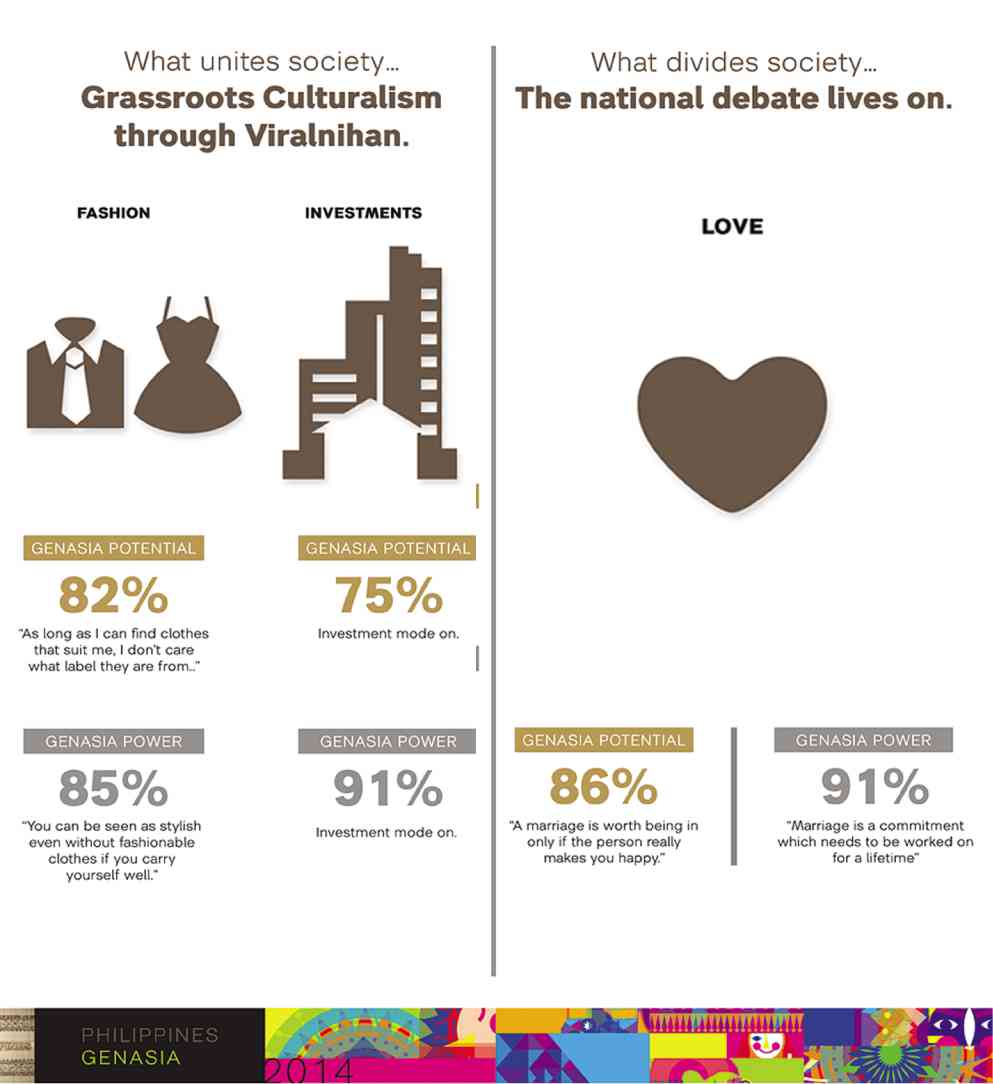‘Viralnihan’ emerges as cultural driving force

This is according to a study by leading marketing communications firm Y&R Advertising, which sought to study how two generations—Generation Asia Potential or those 18-35 years old and Generation Asia Power, aged between 36 and 60—diverged and converged.
Exploring 16 life topics ranging from love to media to travel, Y&R determined that there were many points of similarity.
Says Mary Buenaventura, President/CEO of Y&R Philippines, “Despite the media barrage on the difference between the two generations, our study found an intersection that cut across the gap. We call this Grassroots Culturalism, which is a resurgence of interest in our local culture, but with a twist. Being Filipino now is a celebration of the everyday—from the neighborhood hole in the wall to the global footprint of sports and fashion icons. This convergence evolved the traditional Filipino value of ‘bayanihan’ or the spirit of communal unity, into Viralnihan, a digital explosion that shattered the boundaries of the traditional generation gap.”
Around 85 percent of both GenAsia Potential and GenAsia Power showed a distinct positive attitude about their personal future.
Given the age difference, 93 percent of the former are looking forward to achievements that improve the lives of people, while 78 percent of the latter felt they have contributed positively to society.
The two generations also share similarities in terms of investment outlook, coming at the heels of the country’s first investment-grade rating.
Some 75 percent of GenAsia Potential and 91 percent of GenAsia Power are on investment mode, differing only in type.
The former focuses on passionate investments that reflect their interests, while the latter focuses on stability for the long term.
The similarity extends to clothing as well, with over 80 percent on both sides valuing personal style over clothing labels, and even local designers and influencers over international names.
Meanwhile, on the subject of love, the divide is more discernible, with 91 percent of GenAsia Power seeing marriage as a lifelong commitment and 86 percent of GenAsia Potential seeing marriage as dependent on mutual happiness.
The difference is attributed to the younger cohort’s exposure to a more Western influence, moving away from traditional beliefs to more individual values.
“Understanding what unites and divides these two generations—GenAsia Potential and GenAsia Power—drove us to expand Y&R’s GenAsia study,” concludes Buenaventura. “By unraveling attitudes and perceptions, Y&R, and the brands we work with, are more able to adapt to the varying needs of society and the fast-changing pace in which our message is delivered.”
